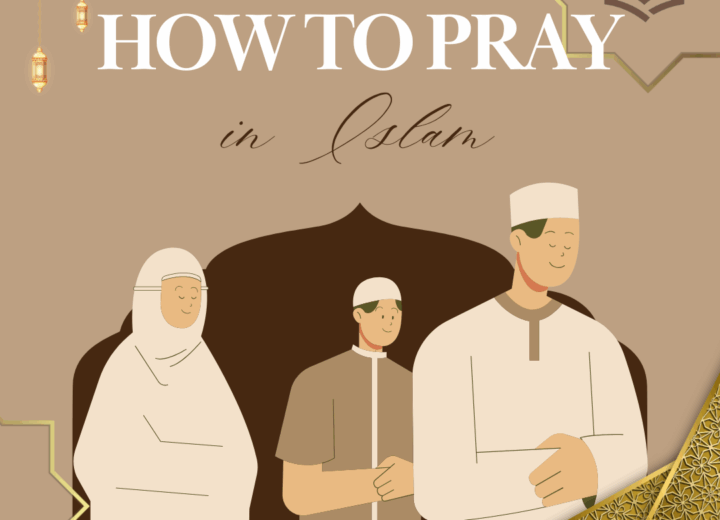The rights of women in Islam are often misunderstood due to cultural misconceptions and stereotypes. While some view Islam as restrictive, the truth is that Islam gave women honor, dignity, and comprehensive rights over 1400 years ago, long before modern systems. In this post, we explore these rights through the lens of the Qur’an and Sunnah, with clarity and authenticity.
1. Equal Human Dignity
The first and most fundamental right Islam gives to women is the recognition of their full human worth and dignity.
قال تعالى: “وَلَقَدْ كَرَّمْنَا بَنِىٓ ءَادَمَ وَحَمَلْنَـٰهُمْ” سوره الاسراء , أيه 70
Allah says in the Qur’an: “Indeed, we have dignified the children of Adam…” [Surah Al-Isra 17:70]
This honor includes both men and women equally. There is no concept in Islam that one gender is superior in value to the other.
2. The Rights of Women to Education
Seeking knowledge is an obligation for every Muslim, man or woman. Islam encourages women to learn about their religion and also to study what benefits them in this world.
Aisha (RA), the wife of the Prophet, was one of the greatest scholars in Islamic history.
قَالَ رَسُولُ اللَّهِ ـ صلى الله عليه وسلم ـ “ طَلَبُ الْعِلْمِ فَرِيضَةٌ عَلَى كُلِّ مُسْلِمٍ “
It was narrated from Anas bin Malik that the Messenger of Allah (ﷺ) said: “Seeking knowledge is a duty upon every Muslim.”
3. The Right to Own Property and Wealth
Long before women in many parts of the world were allowed to own anything, Islam gave women the right to own, buy, sell, and manage their wealth independently.
No one, not even a husband or father, has the right to take a woman’s wealth without her consent.
without her permission. Meanwhile, he is still responsible for providing her with financial support, food, clothing, a home, and all essentials. This system ensures that a woman is protected financially, whether she is single, married, or divorced.
قال تعالى : ” لِّلرِّجَالِ نَصِيبٌ مِّمَّا اكْتَسَبُواْ وَلِلنِّسَآءِ نَصِيبٌ مِّمَّا اكْتَسَبْنَ ” سوره النساء ايه 32
Allah says: “Men will be rewarded according to their deeds and women ˹equally˺ according to theirs.” [Surah An-Nisa 4:32]
Tafsir : (For men there is the reward for what they have earned, (and likewise) for women there is a reward for what they have earned,) indicates, according to Ibn Jarir, that each person will earn his wages for his works, a reward if his deeds are good, and punishment if his deeds are evil. It was also reported that this Ayah is talking about inheritance, indicating the fact that each person will get their due share of the inheritance, as Al-Walibi reported from Ibn `Abbas. Allah then directed the servants to what benefited them.
4. The Rights of Women to Marriage by Choice
Marriage in Islam is a mutual contract, not a one-sided agreement. A woman must agree to the marriage willingly. If she is pressured or forced, the marriage is invalid according to Islamic law.
” عَنْ أَبِي هُرَيْرَةَ قَالَ: قَالَ رَسُولُ اللَّهِ صَلَّى اللَّهُ عَلَيْهِ وَسَلَّمَ: ” لَا تُنْكَحُ الْبِكْرُ حَتَّى تُسْتَأْذَنَ
Abu Huraira reported God’s Messenger as saying, “A virgin must not be married till her permission is asked. ”(Bukhari and Muslim.)
A woman can choose her husband, reject a proposal, and request a divorce if the marriage fails. She is also entitled to a dowry (mahr), which becomes her property.
This right to say “yes” or “no” empowers women to make choices that reflect their values, comfort, and future.
5. The Right to Inheritance
Before Islam, women were often inherited like property, they had no right to inherit anything themselves. Islam abolished that cruelty and established a fixed, just system of inheritance that included women.
فال تعالى: ” أَوْلَـٰدِكُمْ ۖ لِلذَّكَرِ مِثْلُ حَظِّ ٱلْأُنثَيَيْنِ ۚ ” سوره النساء ايه 11
Allah says: “The share of the male will be twice that of the female.” [Surah An-Nisa 4:11]
While this verse is often quoted out of context, it is part of a comprehensive financial system where men are financially responsible for women (as fathers, brothers, and husbands). A woman’s share is hers to keep, she is not expected to spend it on anyone else.
In some cases, like when a woman is the only heir, she may inherit equal or even greater portions than men.
6. The Right to Work and Earn
The work is ethical and doesn’t compromise Islamic values.
Khadijah (RA), the Prophet’s wife, was a wealthy and successful businesswoman. Many other Muslim women followed in her footsteps, working as merchants, teachers, farmers, and more. However, Islam also protects a woman’s right to rest and not be forced into financial burdens. If she chooses not to work, her husband is still responsible for providing for her. This balance gives women the freedom to choose between a professional path, a family life, or both without guilt or pressure.
7. The Rights to Safety, Kindness, and Respect
One of the most beautiful aspects of Islam is how it commands gentleness and kindness toward women.
” قَالَ رَسُولُ اللَّهِ صَلَّى اللَّهُ عَلَيْهِ وَسَلَّمَ: ” خَيْرُكُمْ خَيْرُكُمْ لِأَهْلِهِ
She reported God’s Messenger as saying, “The best of you is he who is best to his family”
Islam prohibits any form of abuse, verbal, emotional, or physical.
A woman has the right to feel safe, honored, and respected in her home and in public. Her dignity is sacred.
Even in times of disagreement or divorce, Islam urges compassion and fairness. Divorce is allowed, but not without clear processes and safeguards for women’s emotional and financial well-being.
Conclusion
Islam gave women rights that were revolutionary in their time and remain powerful today. From education to ownership, from respect to independence, Islam values women deeply and holistically.
If applied properly, Islamic principles create homes and societies filled with justice, love, and balance. As Muslims, we must learn and share the truth about Islam’s treatment of women, not through slogans, but through knowledge, examples, and real compassion.




